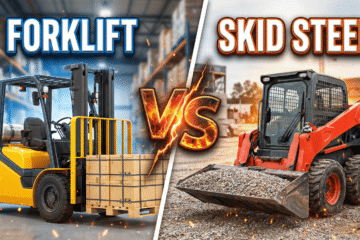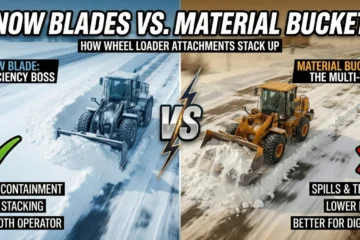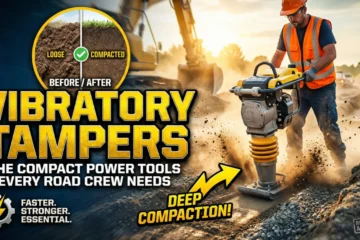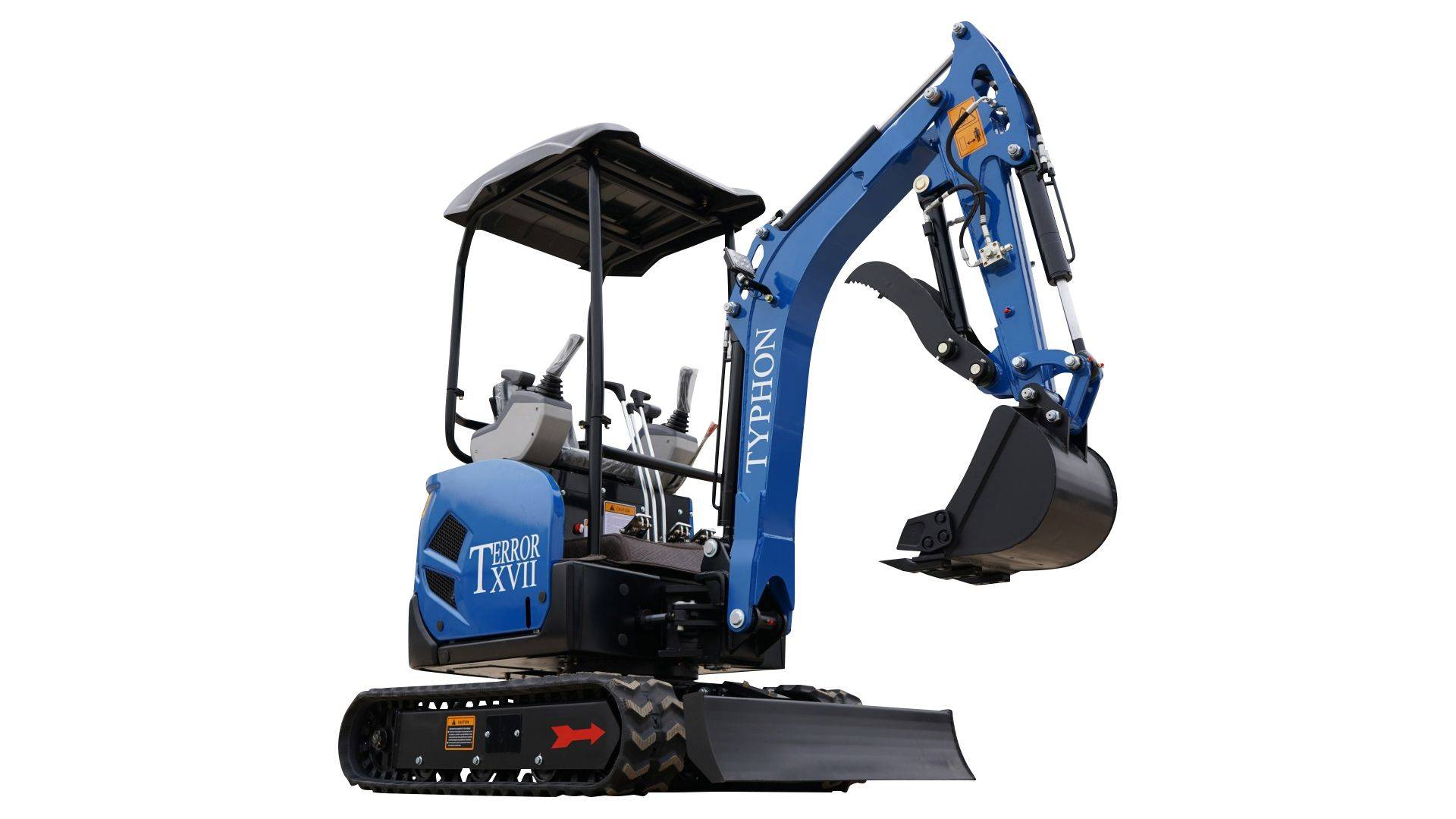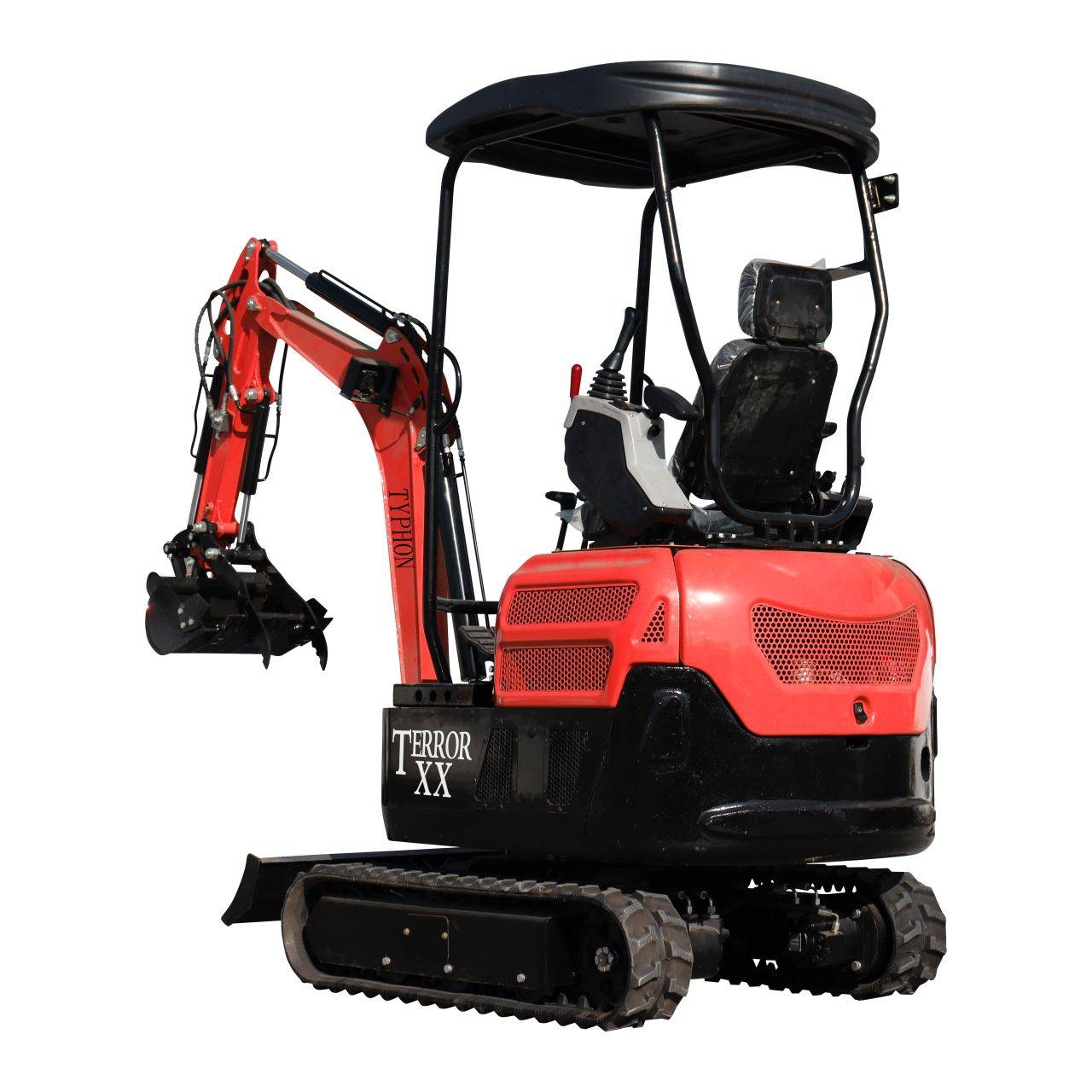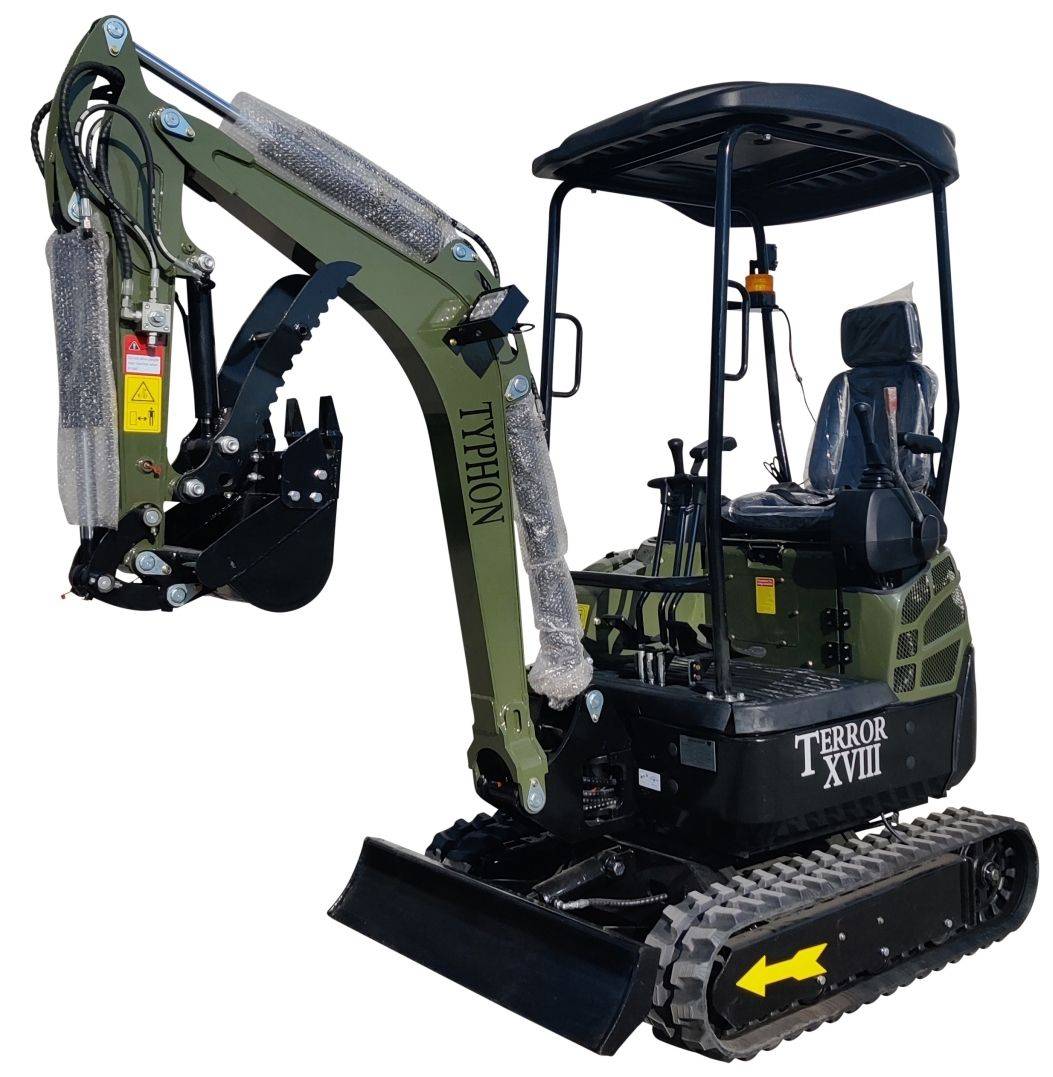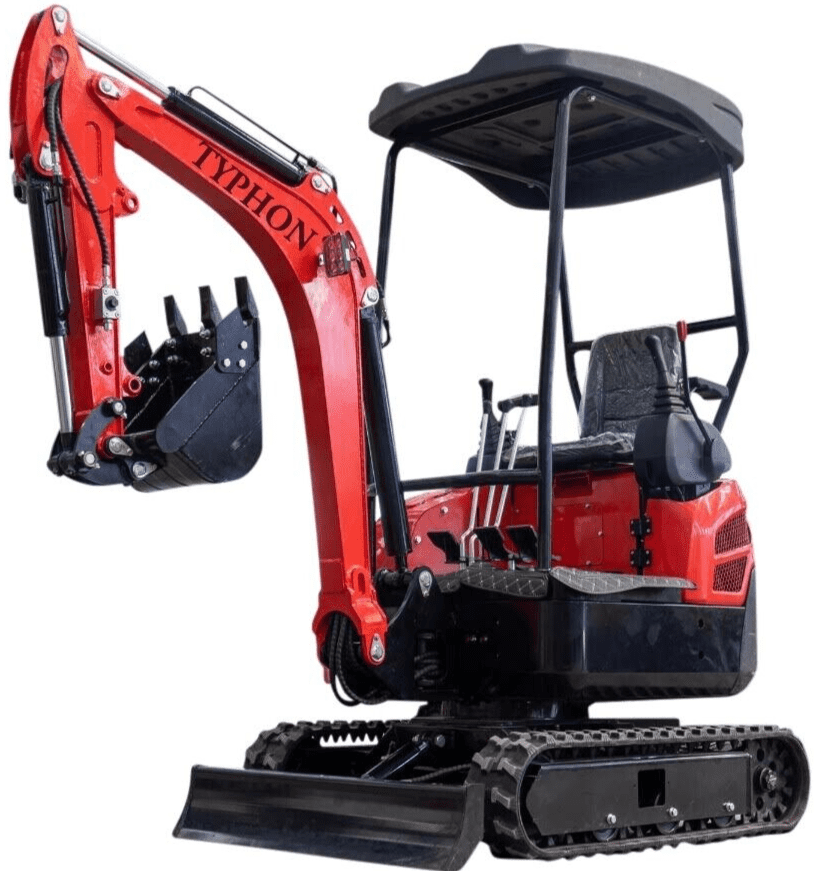
How Do Mini Excavators Enhance Construction Efficiency?
Size in the building sector does not always have equal influence. Now enter the little but mighty mini excavator, which turns job sites—from big undertakings to do-it-yourself ventures. Small business owners, builders, and do-it-yourselfers have to appreciate the efficiency gain tiny excavators offer. Usually costing a lot of money, these heavy-duty vehicles have a boom arm and several attachments for transporting big objects and excavation.
But their adaptability lets one little excavator handle several jobs, therefore reducing labor expenses. Even although they could be costly, the advantages they offer on the job site make them quite worth the investment. This article explores the several advantages of mini excavators and offers ideas, useful advice, and actual case studies to enable you to fully utilize their possibilities.
The Evolution and Role of Mini Excavators
From their introduction in the late 1960s, mini excavators have come a long way. Originally meant to tackle jobs larger excavators couldn’t undertake because of space restrictions, these machines have become essential instruments in contemporary building.
Mini excavators are most well-known for their capacity to run in limited areas where conventional equipment would find difficulty. Both experts in building and do-it-yourselfers love them for their flexibility and technological developments. They are utilized for everything from gardening and utility installation to trench digging and building demolition nowadays.
Enhanced Efficiency in Small to Medium Projects
For small to medium-sized projects, mini excavators are a game-changer. These machines offer unparalleled efficiency, allowing operators to complete tasks more swiftly than manual labor or larger machinery.
One of the key benefits is their compact size, which enables easy navigation through narrow spaces and reduced ground damage. This efficiency translates to quicker project completion times and lower labor costs. The ability to switch between various attachments—like buckets, hammers, and augers—further enhances their versatility, making mini excavators a smart investment for diverse project needs.
Reducing Manual Labor and Enhancing Safety
Mini excavators significantly reduce the amount of manual labor required on job sites. This reduction not only speeds up project timelines but also minimizes the risk of worker injuries.
Automation and mechanization in construction have long been associated with improved safety. By taking over strenuous tasks like digging and lifting, mini excavators lessen the physical strain on workers, leading to fewer workplace accidents and injuries. Additionally, their precision and control allow for safer operations in delicate environments or near sensitive structures.
Versatility Across Various Terrains and Projects
One of the standout features of mini excavators is their adaptability to different terrains and project types. Whether it’s a rocky landscape, a muddy construction site, or a well-manicured garden, these machines can handle it all.
Their tracked wheels provide excellent traction and stability on uneven surfaces, while their hydraulic systems offer fine-tuned control for delicate tasks. From excavation and grading to drilling and demolition, mini excavators prove their worth across a spectrum of activities, making them essential for contractors and DIYers alike.
Real-World Case Studies
Transforming Residential Landscaping
A small landscaping company in Colorado recently reported a 30% reduction in project timelines after incorporating mini excavators into their workflows. Tasks that previously took days to complete manually were finished in hours, allowing the company to take on more clients and increase their revenue.

Accelerating Urban Construction
In an urban construction project in New York City, mini excavators played a pivotal role in meeting tight deadlines. The machines’ ability to maneuver through narrow alleyways and confined spaces enabled the construction team to complete foundation work ahead of schedule, saving significant costs on labor and equipment rental.
Enhancing DIY Home Renovations
A DIY enthusiast in Texas used a mini excavator to undertake a backyard renovation project. The machine’s versatility and ease of use allowed her to perform tasks like trench digging and stump removal without professional help, significantly cutting down project costs and time.

Regular Maintenance Practices for Optimal Performance
Maintaining your mini excavator in top condition is crucial for ensuring its efficiency and longevity. Regular inspections and servicing can prevent costly breakdowns and extend the machine’s lifespan.
Daily Checks
Perform a visual inspection every day before use. Check for any visible signs of wear and tear, fluid leaks, and ensure that all attachments are secure. This simple routine can help identify potential issues before they escalate.
Scheduled Servicing
Follow the manufacturer’s recommendations for scheduled servicing. This typically includes checking and replacing hydraulic fluids, filters, and other essential components. Regular servicing by qualified technicians ensures that your mini excavator operates at peak performance.
Proper Storage
Store your mini excavator in a clean, dry location when not in use. Exposure to harsh weather conditions can lead to rust and other damage. Use protective covers if necessary to keep the machine in pristine condition.
Safety Protocols for Operators and On-Site Personnel
Safety should always be a top priority when operating a mini excavator. Adhering to proper safety protocols can prevent accidents and ensure a safe working environment.
Operator Training
Ensure that all operators are properly trained and certified to use mini excavators. Comprehensive training programs cover essential skills like machine handling, safety procedures, and emergency protocols.
Personal Protective Equipment (PPE)
Operators and on-site personnel should always wear appropriate PPE, including hard hats, safety glasses, gloves, and steel-toed boots. This gear provides essential protection against potential hazards.
Site Safety Measures
Implement site safety measures such as clear signage, barriers, and communication protocols. Regular safety briefings and drills help keep everyone informed and prepared for emergencies.
The Future of Mini Excavators in Construction
The future of mini excavators looks promising, with technological advancements poised to further enhance their efficiency and safety. Innovations like telematics, automation, and electric models are set to revolutionize the construction industry.
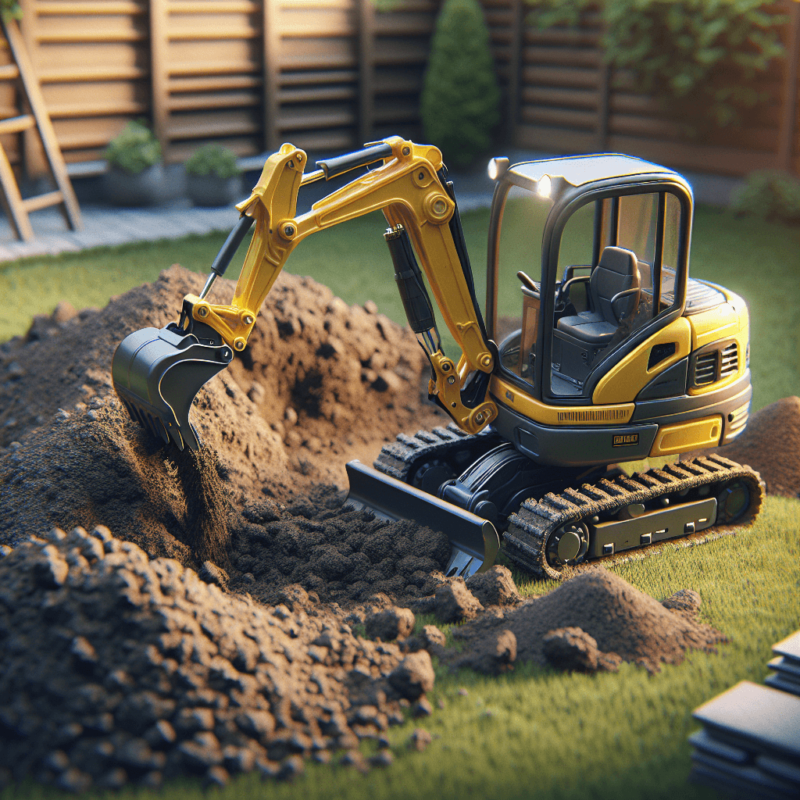
Telematics and Data Analytics
Telematics systems provide real-time data on machine performance, location, and usage. This information allows operators to monitor and optimize their equipment, leading to better decision-making and increased efficiency.
Automation and Remote Control
Advancements in automation and remote control technology enable operators to control mini excavators from a distance. This not only enhances safety by removing operators from hazardous environments but also improves precision and productivity.
Electric-Powered Models
Electric-powered mini excavators are gaining traction as a sustainable alternative to traditional diesel-powered machines. These eco-friendly models offer reduced emissions, lower noise levels, and decreased operating costs, aligning with the industry’s push towards greener practices.
Multifunctionality of Excavators at Construction Sites
Excavators are integral assets in construction, capable of executing a diverse array of tasks that are essential for project completion. Traditionally, contractors would need to invest in various pieces of heavy equipment, leading to considerable overhead costs. However, excavators alleviate this financial burden by performing multiple functions efficiently. From digging trenches and moving large objects to lifting and positioning pipes, river dredging, demolition, landscaping, and site grading, these machines are versatile tools that can adapt to different project requirements. Their application spans a variety of sectors, including mining, real estate, infrastructure, urban development, general construction, and agriculture.
The availability of numerous attachments further enhances the adaptability of excavators. For instance, a grapple can be employed for land clearing, while a specialized bucket is essential for excavating foundation footings or performing trench work for underground utilities. Other attachments, such as clamps, aid in site preparation, and plate compactors ensure trenches are finished smoothly. Essentially, excavators can effectively take on the roles of a hydraulic crane, loader, backhoe, compactor, and drilling machine within a single project site, significantly improving operational efficiency and reducing the need for additional equipment.
Overcoming Manual Labour Shortages with Excavators
In today’s construction landscape, the shortage of manual labour poses significant challenges that excavators can effectively overcome. By mechanizing tasks traditionally performed by manual workers, excavators not only reduce the dependency on costly manual labour but also enhance project efficiency. For instance, the speed at which excavators can perform tasks like digging far surpasses that of human labourers, enabling contractors to accelerate timelines without compromising quality. This efficiency allows manual workers to be redeployed in more skilled roles, maximising their talents where they are most needed.
Moreover, as the industry grapples with the post-Covid labour market and the difficulty of reconnecting with migrant workers, excavators stand out as a critical solution. Their ability to handle substantial workloads expedites project completion while minimising quality defects and the potential for costly rework. This not only aids contractors in meeting deadlines but also optimises overall productivity, making excavators an indispensable asset in modern construction practices.
Excavators Reduce the Need for Rework
Rework is an ongoing challenge for contractors, often translating into significant additional costs, time delays, and increased effort. The necessity for rework typically stems from work that does not meet quality standards or client expectations. However, excavators, equipped with advanced technologies, are designed to deliver superior precision and efficiency in their operations. By executing tasks with a high degree of accuracy, these machines substantially mitigate the risk of errors, thereby reducing the likelihood of rework. This efficiency not only saves valuable time but also curtails unnecessary expenses associated with rectifying mistakes. Ultimately, the integration of excavators into project workflows enhances overall project efficiency, enabling contractors to focus resources on delivering quality results rather than addressing the repercussions of subpar work.
Excavators Increase Profitability
Excavators significantly contribute to the profitability of construction projects through enhanced productivity, improved fuel efficiency, and undeniable reliability. With the ability to complete tasks swiftly and accurately, these machines minimize downtime and ensure that projects progress according to schedule. The integration of advanced technologies has further improved fuel consumption rates, allowing contractors to reduce operational costs while maximizing output. This efficiency not only leads to timely project completion but also enhances the overall return on investment (ROI) for owners. Ultimately, the strategic use of excavators positions contractors to achieve greater financial success and competitive advantage within the construction market.
Excavators Enhance Jobsite Safety
The integration of advanced technology in excavators significantly enhances jobsite safety, which in turn has a direct positive impact on business margins and profitability. Modern excavators are equipped with cutting-edge safety features such as proximity sensors, cameras, and automatic shutoff systems that help prevent accidents by providing operators with enhanced situational awareness. By reducing the risk of incidents, these machines not only protect the well-being of workers but also minimize the financial repercussions associated with workplace injuries and downtime.
Furthermore, with operators positioned safely within the cab or utilizing remote operation capabilities, the exposure to hazardous environments is drastically reduced. This focus on safety not only boosts morale among workers but also fosters a professional image for contractors, instilling confidence in clients regarding their commitment to workplace safety. Ultimately, the investment in safe operating practices facilitated by excavator technology leads to lower insurance costs, fewer legal liabilities, and a more efficient workforce—all of which contribute to improved profitability in the construction industry.
Excavators Help in Meeting Project Deadlines
Modern excavators are highly advanced and technologically sophisticated machines equipped with telematics, machine control, and integrated technology that revolutionise project management. These enhanced capabilities allow users to monitor real-time machine performance remotely, facilitating better oversight and management of ongoing work. By utilising this sophisticated technology, construction companies can effectively coordinate operations, address any potential issues promptly, and complete tasks at a significantly faster pace. This streamlined approach not only ensures that projects remain on schedule but also enhances overall project efficiency. Ultimately, the ability of excavators to adapt quickly and efficiently to changing project demands empowers construction firms to meet and exceed project deadlines with ease, thereby reinforcing their reputation and reliability in the highly competitive construction market.
Conclusion
Mini excavators have proven to be invaluable assets in the construction industry, offering enhanced efficiency, versatility, and safety. From small landscaping projects to large urban construction endeavors, these machines continue to transform how work is done.
For construction professionals, small business owners, and DIY enthusiasts, investing in a mini excavator can lead to significant time and cost savings. Regular maintenance and adherence to safety protocols ensure that these machines remain in peak condition, providing reliable performance for years to come.
Explore your options today and discover how a mini excavator can elevate your construction projects to new heights. Whether you’re looking for a mini excavator for sale or need advice on the right model for your needs, expert guidance is readily available to help you make informed decisions.

